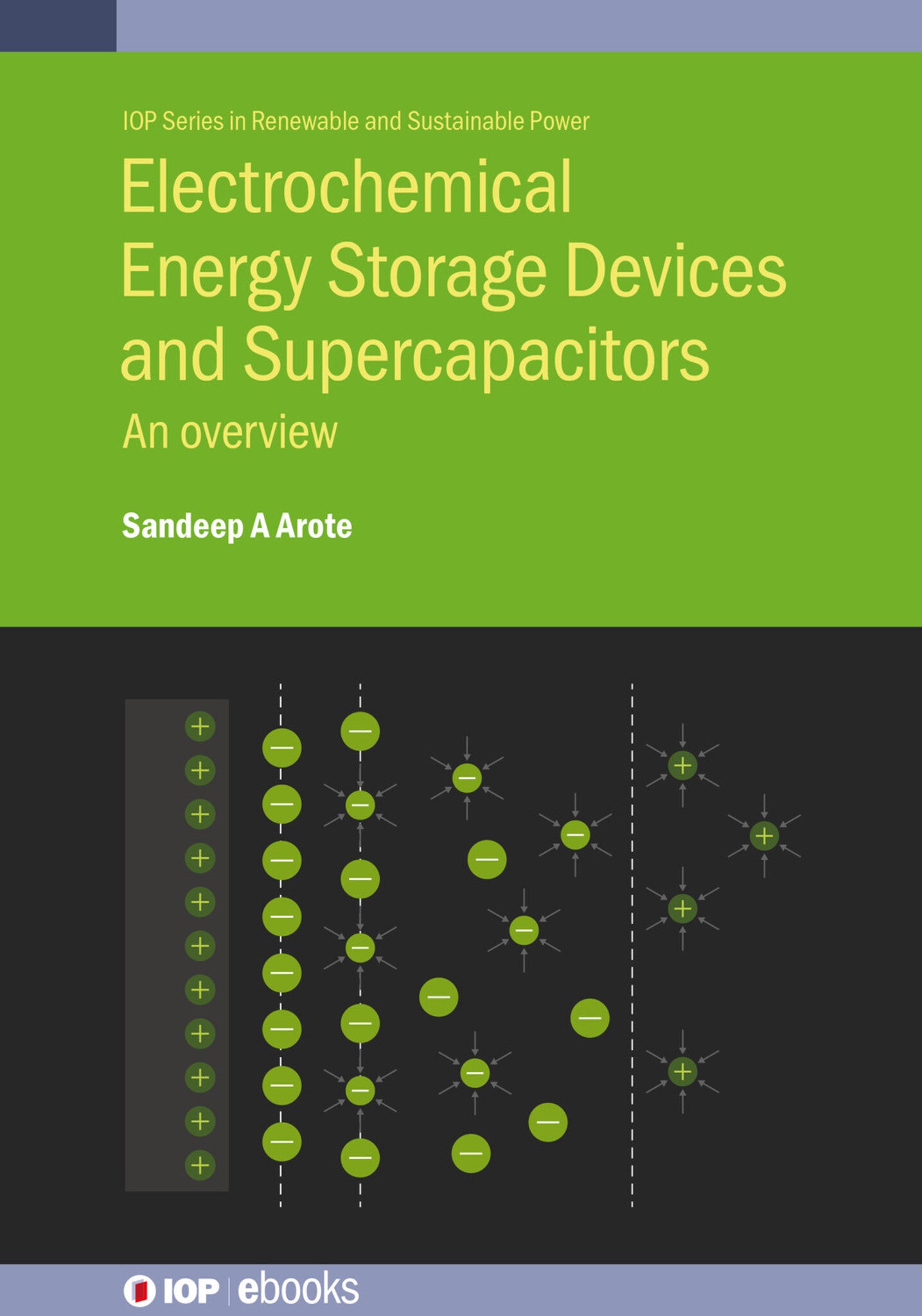We're sorry. An error has occurred
Please cancel or retry.
Electrochemical Energy Storage Devices and Supercapacitors

Some error occured while loading the Quick View. Please close the Quick View and try reloading the page.
Couldn't load pickup availability
- Format:
-
19 December 2021

This book provides a comprehensive account of the fundamental aspects of electrochemical energy storage devices, with a focus on electrochemical supercapacitors. Building from an in-depth knowledge of the present state of energy utilisation, contextualised against the requirement for renewable energy, the book sets out the components and performance-governing parameters of conventional and supercapacitors, identifying the challenges, trends and limitations involved in their implementation. Accessible and authoritative, this book is ideal for undergraduates, postgraduate students and research scholars, as well as industry professionals working in energy, nanoscience, material science, and the automobile industry for e-vehicles.
Key Features:
- Each chapter contains a table comprising performance parameters of the device
- Provides fundamental electrochemical properties of material and performance parameters for energy storage devices
- Includes requirement, characteristics, classification and recent trends in electrode materials for supercapacitors
- Summarizes formation of material by various methods
- Provides a broad insight of energy storage devices for future technological applications

TECHNOLOGY & ENGINEERING / Power Resources / Alternative & Renewable, Energy, power generation, distribution and storage

This four-chaptered book is on electro-chemistry fundamentals of electrochemical energy storage devices, with a strong focus on supercapacitors. Chapter 1 is an excellent overview on electrochemical energy storage mechanisms and performance assessments. Chapter 2 is a very concise, but a very informative, chapter on different types of supercapacitors and their working principles and classification. Chapter 3, based on 144 references, is an overview of carbon-based materials for supercapacitors Finally, Chapter 4, based on 226 references, provide an overview of electrode materials for pseudo and hybrid supercapacitors. This book is a very comprehensive discussion on electro-chemistry aspects of various types of supercapacitors based on an extensive collection of references. The author has done an excellent job of providing the research directions of supercapacitors. As an applications engineer working on supercapacitors, I enjoyed reading it.
Nihal Kularatna, IEEE Magazine, July/August 2023
Chapter1: Fundamentals and perspectives of Lithium-ion Batteries
•Introduction
•Battery types
•Secondary battery
•Components of Electrochemical cell (EC)
•Lithium ion battery
•Components in LIB
•Electrochemistry related to LIB
•Importance of Li
•Working mechanism
•Driving force for moment of Li+ in LIB
•Voltage of a battery
•Battery Charging and discharging Process
•Commonly introduced materials
•Challenges and Opportunities
•Conclusion
•References
Chapter 2: Positive Electrode Materials for LiB
•Introduction
•Materials for Li –ion battery
:•Active Material for LIB: Cathode
•Criteria for selection of cathode material:
•LMO Material for Cathode electrodeoLiCoO2-Based Positive Electrode Material oLiNiO2-Based Positive Electrode MaterialsoSpinel LiMn2O4-Based Positive Electrode MaterialsoLiFePO4-Based Positive Electrode Materials.
•Other Positive Electrode Materials
•Conclusion
•References
Chapter3:Fundamentals and perspectives of Lithium-Sulfur Batteries
•Introduction: Limitations of Li-ion batteryand current needs
•Lithium-Sulfur Batteries
•Working Principle and Mechanism
•Importance of S
•Theoretical predictions
•Components in LIS
•Commonly introduced materials
•Role of Electrolyte in Sulfur Cathode Chemistry
•Importance and limitations of LiS
•Challenges and Opportunities
•Conclusion
•References
Chapter 4: Host Materials for sulphur in LiS battery
•Introduction
•Physical confinement of sulfur species and Chemical anchoring of sulfur species, fixing and capturing
•Host matrices for Sulfur Carbon based Metal oxide based Metal sulfide based
•Challenges and Opportunities
•Conclusion
•References



